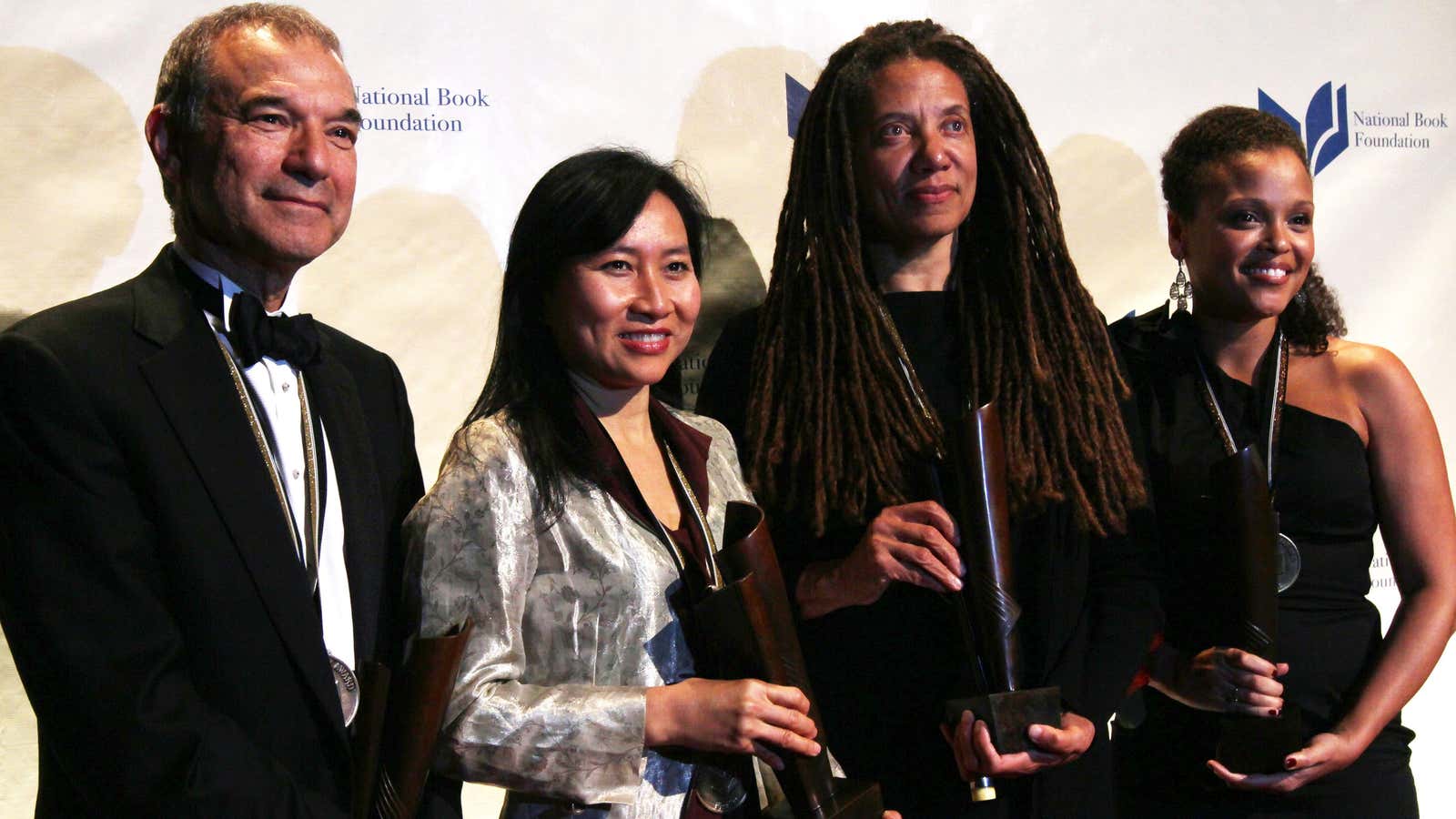Last year Penguin Random House UK announced it would start actively tracking the diversity of its staff and the authors it publishes, with the goal of matching UK demographics by 2025. American writer Lionel Shriver—author of We Need to Talk about Kevin and vocal critic of what she views as a too-PC culture—wrote a scathing op-ed June 9, after she found out about the announcement.
“Dazzled by this very highest of social goods, many of our institutions have ceased to understand what they are for,” Shriver wrote in the Spectator. “Drunk on virtue, Penguin Random House no longer regards the company’s raison d’être as the acquisition and dissemination of good books.”
PRH UK responded by re-affirming its plan to track yearly progress on diversity of ethnicity, gender, sexuality, social mobility, and disability, and to make the information publicly available. “We acquire all our writers on talent, first and foremost. However, in setting this goal we recognised that we needed to do more in actively seeking out talented writers from communities under-represented on the nation’s bookshelves,” a spokesperson writes by email.
Indeed, Shriver’s criticism might hold more weight if PRH UK were to, improbably, throw all questions of quality out the window. More troublingly, the author’s argument assumes that currently the publishing industry is free of bias, that it’s a system in which the highest quality books rise to the top, a paragon of literary meritocracy.
Of course, it’s not. Mediocrity is equal-opportunity, and it’s not a foregone conclusion that embracing diversity either in hiring or creative output would end in the kind of error-ridden drivel Shriver seems to fear. She writes:
We can safely infer from that email that if an agent submits a manuscript written by a gay transgender Caribbean who dropped out of school at seven and powers around town on a mobility scooter, it will be published, whether or not said manuscript is an incoherent, tedious, meandering and insensible pile of mixed-paper recycling.
“She is literally saying that … if you just stay the same and keep the status quo, which is a system that is favorable toward white writers, that’s how you keep quality,” says Ellen Oh, YA author and head of the non-profit We Need Diverse Books, “Quality of writing has always been good or bad in every community.”
“If you prevent certain people from gaining access [to the literary marketplace] because you don’t accept that publishing is like all structures of power, you’re not going to get the best writing,” adds Philip Nel, author of Was the Cat in the Hat Black? The Hidden Racism of Children’s Literature, and the Need for Diverse Books.
In fact, children’s publishers have been making efforts in recent years to address marginalized communities, and US kids books written by and about people of color are on the rise, according to data collected by the University of Wisconsin-Madison’s Cooperative Children’s Book Center School of Education.
And juries for big book prizes for adults are managing to find titles by people of color to give awards to.
